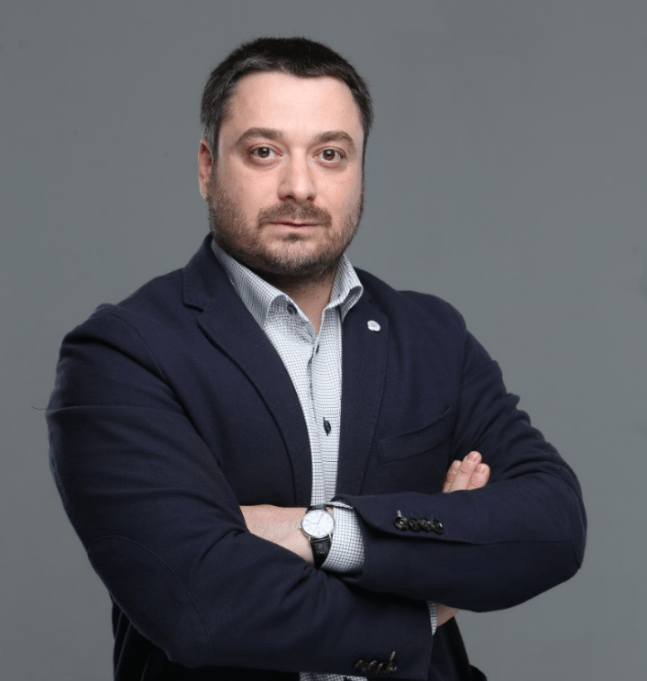Georgia on the Edge of Autocracy: How the Foreign Agents Law Stifles Georgia’s European Aspirations
The governing party Georgian Dream aims to create existential threats to the Georgian civil society organizations (CSOs) and the media to silence critical voices.
The Russian-style Foreign Agents Law adopted by a parliamentary majority can be used to target any CSO and critical media, for any activity. Its scope aims to stigmatize and silence all critical actors to the state authorities. The fines envisaged by the law are defined in a way that imposes massive financial sanctions on entities and individuals in an endless manner. The non-payment of the fines can lead to the imposition of additional sanctions, including the freezing of the assets. The adoption of the law in the pre-election period is not accidental. On the contrary, the time was deliberately chosen by the ruling political party.
The real objective of Georgian Dream
Although the explanatory note to the Russian-style Foreign Agents Law formally claims “ensuring transparency” as the objective, the rhetoric used by the leaders of the ruling political party to present the alleged necessity indicates that the real purpose is to create existential threats to the Georgian civil society and the media to silence critical voices. The assessments of the Venice Commission and OSCE/ODIHR indicate that the law does not pursue any legitimate aim prescribed by the European Court of Human Rights, nor “attesting to a particular necessity.”
The statements made by the high officials of Georgian Dream in support of the Foreign Agents Law revealed that the ruling political party has embarked on an anti-democratic path that could lead the country to autocracy.
Shortly after the draft law was supported with the first reading, Prime Minister Irakli Kobakhidze held a press conference. The messages delivered by the Prime Minister made it clear that the activities of the Georgian civil society organizations inter alia aimed at monitoring the electoral environment and elections, supporting religious minorities and LGBTQI people, and monitoring the judiciary and law enforcement system which is particularly unacceptable to the ruling political party. Similar narratives have been expressed during other press conferences of the Prime Minister in relation to the Russian-style Foreign Agents Law.
On April, 29 the founder and Honorary Chairmen of Georgian Dream oligarch Bidzina Ivanishvili announced further repressions and the aim of eliminating political opponents and civil society organizations.
Rebutting the rhetoric used by the Georgian Dream
The adoption of the Russian-style Foreign Agent Law does not only harm the landscape in which the Georgian CSOs and media operate but also has a detrimental impact on the state’s security and stable development. The actions and rhetoric of Georgian Dream reveal that stopping Georgia’s advance toward the EU and NATO is the goal of the ruling political party regardless of the direct requirements of the Constitution, state interests enshrined in the National Security Concept of Georgia, and support of the EU accession process by an overwhelming majority of Georgian citizens.
The main narrative of the ruling party about the alleged need for the law is constructed around a narrative of sovereign democracy, defending Georgia’s national interests, and protecting its security. However, neither the explanatory note of the draft law nor parliamentary discussions revealed that the initiation of the draft law was preceded by any research, study, or threat assessment regarding the possible effects on Georgia’s national interests, sovereignty, and security. On the contrary, the objectives to which the state refers in its rhetoric have already been demonstrably undermined by the adoption of the law and, inter alia, represent a deliberate neglect of the requirements enshrined in the Constitution, which obliges the constitutional bodies to take all measures within their competences to ensure Georgia’s full integration into the European Union and NATO. The European Council called on Georgia’s authorities “to clarify their intentions by reversing the current course of action which jeopardizes Georgia’s EU path, de facto leading to a halt of the accession process.” Considering the deliberate actions made by Georgian Dream more than 250 non-governmental and media organizations suspended cooperation formats with the government even before the final adoption.
The Russian-style Foreign Agents Law has been adopted with the purpose of changing the country’s foreign policy course. The current situation in Georgia makes the upcoming parliamentary elections even more important, as its outcome will determine whether the country will be able to continue the process of European Integration or will completely fall into autocracy. On July 16, the Prime Minister already announced that the party is not going to lose any elections “for at least another twelve years.”
Ruling political party representatives promote and orchestrate repressions against critical voices
Following the reintroduction and adoption of the Russian-style Foreign Agents Law, there have been numerous incidents of attacks, attempts of threats, and intimidation against opponents of the law. However, large-scale protests continued unabated.
Different methods of repression have been used against critical voices: attacks and ambushes by a group called “Titushky,” threatening and intimidating phone calls including to minors using so-called Caller ID Spoofing, vandalizing offices and home entrances, and unlawful arrests with excessive use of police forces.
Vandalism and the developments of May 31 are particularly noteworthy since the Georgian Dream MP and a member of the political council of the ruling party, Dimitri Samkharadze posted a video recording of the vandalism from that day and among other things admitted that the representatives of the ruling party and other affiliated people were behind the organization of the vandalism to begin with. It should be underlined that earlier on the same day a threat was made by a representative of the parliamentary majority to prosecute anyone protesting the adoption of the Russian-style Foreign Agents Law with the “espionage article” of the Criminal Code.
Governing the country for 12 years resulted in a concentration of unfettered power in the hands of the Georgian Dream, bringing all three branches of government and key state institutions under its influence. The courts, law enforcement agencies, and civil service, in general, are used as an instrument of fear and actively participate in repressions and passively ignore the wrongdoings of law enforcement agencies and state officials.
Landscape during the pre-election period
On October 26, 2024, Georgia will hold parliamentary elections, while the application of repressive measures of the Russian-style Foreign Agents Law against target organizations is expected to start at the beginning of September.
The Russian-style Foreign Agents Law is merely one of the tools of the ruling political party, and it has a wide range of mechanisms at its disposal for targeting CSOs, Media, Human Rights Defenders, and individuals with critical views and opinions. Thus, further repressive measures are expected.
In addition, the ruling party is trying to divert attention from the real problems that are of vital importance to every citizen and uses the homophobic and discriminatory legislative package and a draft of the constitutional amendments as a “pillar” of the pre-election campaign. The Venice Commission states that “… the mere proposal of adopting this text risks to (further) fuel a hostile and stigmatizing atmosphere against LGBTI people in Georgia.”
Georgian civil society organizations declared that they will not obey the Russian-style Foreign Agents Law and are going to use all domestic and international mechanisms to impede its operation until the law is unconditionally repealed. However, the coming months will be extremely difficult for the critical voices that safeguard Georgia’s European path, while the results of the parliamentary elections will determine the future of Georgian society.
First published on Visegrad Insight.

